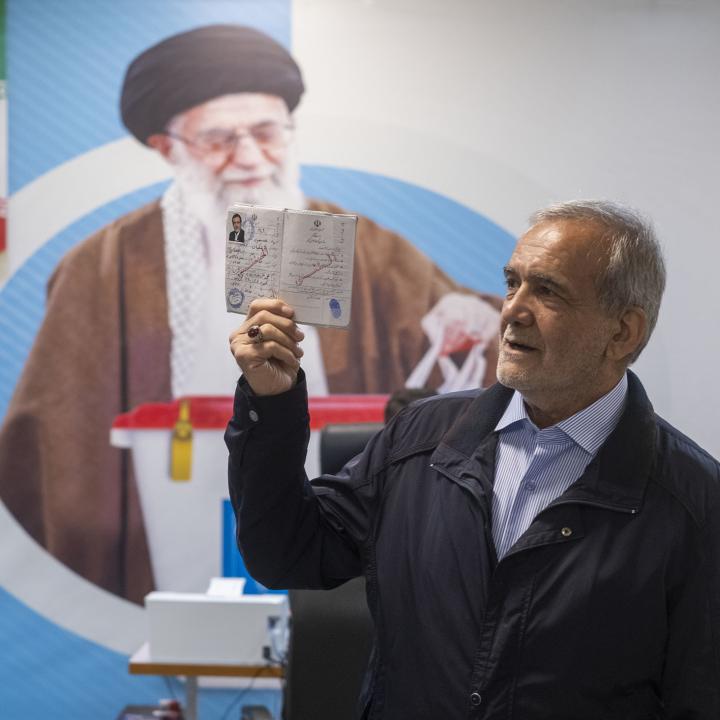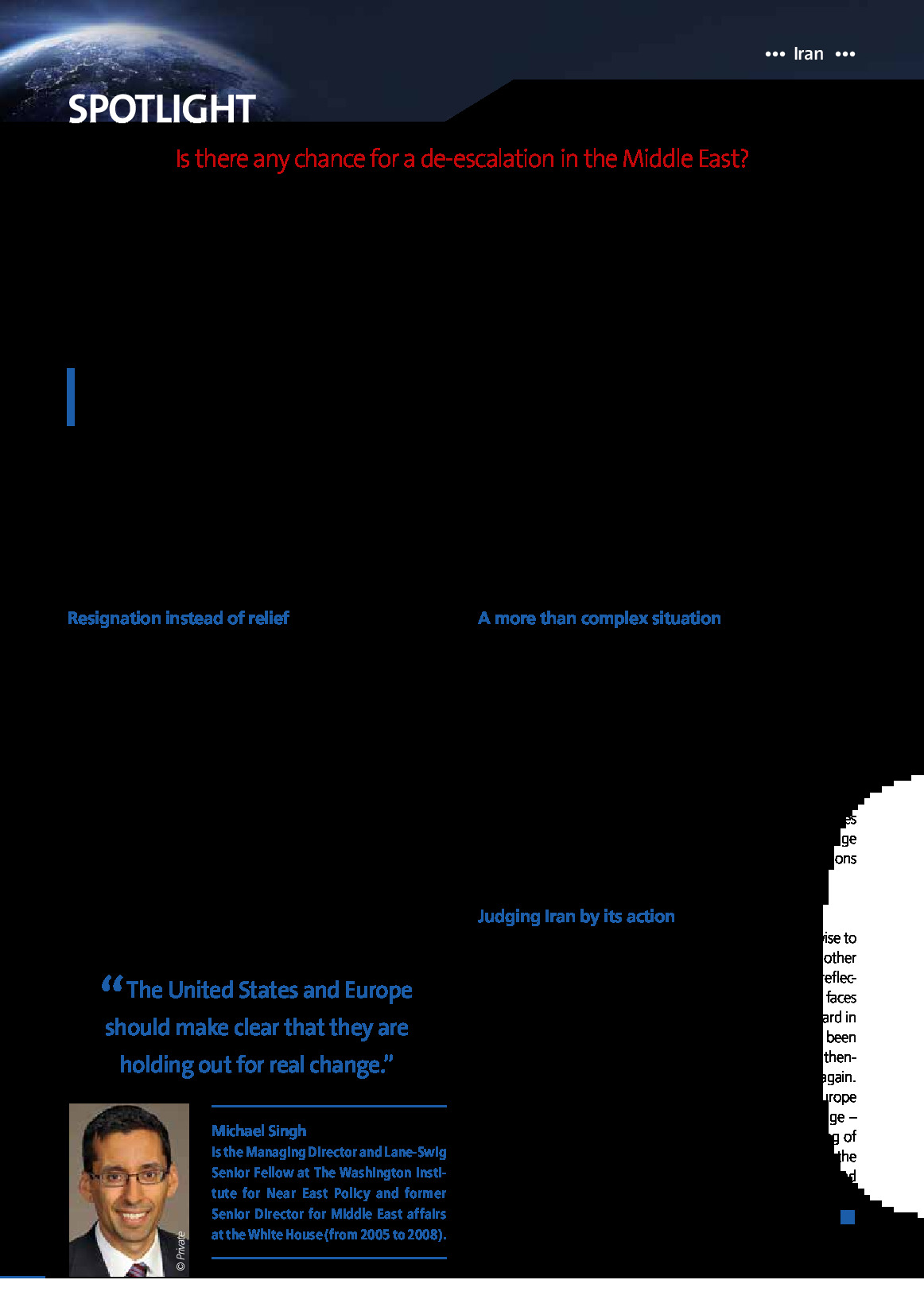

Policymakers would be wise to view Pezeshkian’s rise not as a development that will change Iran, but as a reflection of a regime that is struggling to stave off domestic troubles.
In much of the west, the election in late July of Masoud Pezeshkian as president of Iran elicited sighs of relief. Pezeshkian is, in the international narrative, a “reformist” of a very different stripe than his predecessor Ibrahim Raisi, a “hardliner” in the American and European taxonomy of authoritarian regimes. Whereas Raisi had overseen a dramatic expansion of Iran’s nuclear activities, a tightening of Iran’s relations with China and Russia, and an aggressive new approach to Iran’s regional adversaries, western observers hoped Pezeshkian would seek de-escalation and detente, and perhaps even a new deal with Washington to replace the defunct 2015 nuclear accord. Iranians, in contrast, greeted his rise not with relief but with resignation...
To read the full article, download the PDF version on this page.




